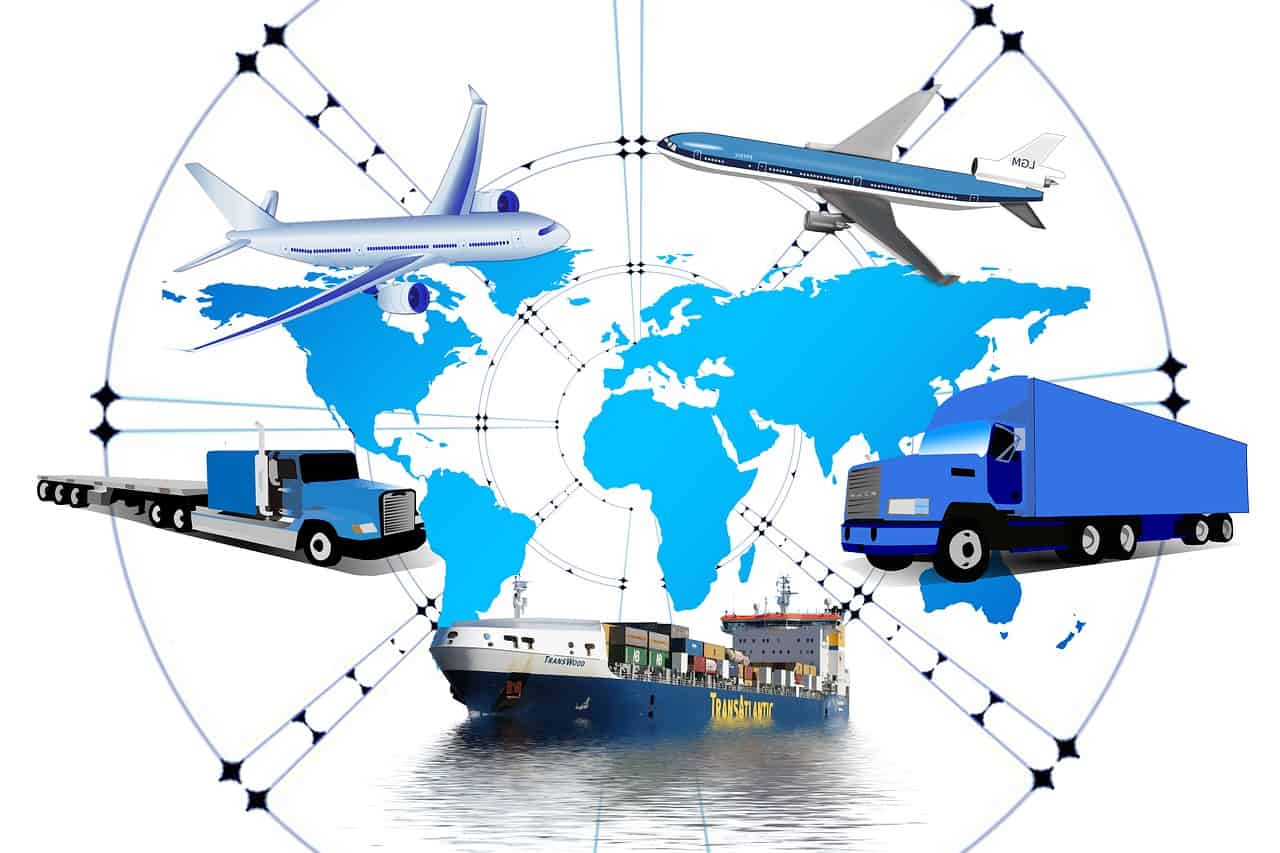3 International Shipping News Stories Affecting Imports & Exports Right Now

What’s happening in international shipping right now? Here are three news stories currently affecting imports and exports. Plus, there’s a bonus ILA Strike threat summary at the end.
1. Russia to Aid Houthi with Anti-Ship Missiles?
It appears Russia is getting involved with the Houthi attacks on ships in the Gulf of Aden and the Red Sea, which have been stopping carriers from sending container ships through the Suez Canal. From the beginning of the attacks, Houthi rebels have been backed and supplied with weapons by Iran. Now, according to an article by Michael R. Gordon and Lara Seligman in the Wall Street Journal (WSJ), Russia might be trying to give the militants in Yemen “advanced antiship missiles in retaliation for the Biden administration’s support for Ukrainian strikes inside Russia with U.S. weapons.”
Gordon and Seligman report in the article that the Biden Administration is attempting a diplomatic effort to prevent Russia from transferring missiles to Yemen by using an unnamed third country to persuade Russia’s President Putin not to join Iran in supplying the Houthis with weapons.
This happens as the Houthi attacks are becoming bolder and more deadly. Beyond their attacks on ships, they’ve now managed a drone attack on Israel that left many injured and one dead, according to several reports. The Biden Administration’s attempts, including air raids, to stop the Houthi attacks have completely failed so far.
Russia aiding the anti-Israel Houthi rebels would be in retaliation to the Biden Administration supplying Ukraine with weapons to use against Russia. The antiship missiles from Russia would also represent a major upgrade in weaponry for the Houthi, according to the WSJ article:
“The Houthis have the most robust antiship capabilities among Iran’s regional proxy network,” said Behnam Ben Taleblu, a senior fellow at the Foundation for Defense of Democracies think tank. “But Russian antiship weapons would represent a qualitative leap and add more teeth to the existing Houthi maritime threat.”
Perhaps a new administration in the White House will find a way to secure international shipping routes through the region. However, as things stand, there’s no end in sight to carriers having to stay away from the Suez Canal, expending more ships to move the same amount of goods as many diversions include traversing down and around the continent of Africa.
2. Fire on Maersk Container Ship Claims Crew Member’s Life
Matko Rak reported in a World Cargo News article about a fire on a Maersk container ship that killed one of the crew members onboard. A short circuit is the apparent cause of the fire, which included explosions. The heat from the fire and chemicals in containers appear to have reignited the fire several times. It was a Filipino seaman who was killed by the tragic fire. Thankfully, all of the rest of the crew of the Maersk Frankfurt are accounted for and well.
As of yesterday (July 22nd), according to Rak’s reporting, teams were still battling the fire on the ship off the coast of India:
Indian Coast Guard (ICG) ships and aircraft continued their efforts on Monday to tackle the fire aboard the Maersk Frankfurt. A four-member salvage team, including chemical experts, has successfully boarded the vessel. Three ICG ships and ICG ALH helicopters have been working to suppress the fire, which intermittently reignites. Currently, thick smoke is emanating from the fire’s origin on the merchant vessel, positioned approximately 35 nautical miles southwest of Mangalore.
On Sunday, the ICG stated that the fire had spread to the starboard side of the vessel, particularly affecting the lower stacked containers. The vessel’s master confirmed the presence of flames on the starboard side. Additionally, the owner of the Maersk Frankfurt has deployed a salvage team.
The vessel, carrying 1,154 containers, is reported to be in stable condition with all machinery, steering, and navigational equipment fully operational.

Not only is this a terrible story because of the loss of life caused by the fire, but it’s also a reminder of the need for cargo insurance when importing and exporting goods.
3. FMC Publishes Final Rule on Refusal to Deal Concerning Carriers and Shippers
The Ocean Shipping Reform Act of 2022 (OSRA), required the Federal Maritime Commission (FMC) to do a great deal of new rule creation for the international shipping industry. The FMC just finalized and published another rule set, this one dealing with carriers refusing to deal or negotiate with shippers.
During the pandemic and ensuing supply chain crisis, U.S. exporters’ complaints – particularly those of agricultural exporters – about carriers refusing shipping containers and service to them made headlines. Rather than allowing these U.S. shippers to export their goods, carriers actually shipped empty containers from the U.S. back to Asia in order to more quickly serve the much more lucrative eastbound transpacific shipping routes. Legislators wanted the FMC to create rules to prevent such situations in the future.
With OSRA in general, lawmakers looked to give more protection to shippers and put more scrutiny on carriers. The supply chain crisis made maritime law reform a topic Democrats and Republicans could actually agree upon, and we’re still only just beginning to see how the changes in law will affect the industry.
We’ll likely publish the FMC’s full “Final Rule on Unreasonable Refusal to Deal” in Thursday’s blog post. In the meantime, the FMC published a short article announcing the rule. Here’s its full text:
FMC Publishes Final Rule on Unreasonable Refusal to Deal
The Federal Maritime Commission today published its final rule concerning “Definition of Unreasonable Refusal to Deal or Negotiate with Respect to Vessel Space Accommodations”.
The rule establishes the necessary elements for the Commission to apply 46 U.S.C. 41104(a)(3) with respect to refusals of cargo space accommodations when available, and 46 U.S.C. 41104(a)(10) with respect to refusals of vessel space accommodations.
Where an alleged refusal by an ocean common carrier takes place during the “negotiation” phase of a transaction, 46 U.S.C. 41104(a)(10) would apply. If an alleged refusal takes place after the negotiation phase, during the “execution” stage, 46 U.S.C. 41104(a)(3) would apply.
Claims brought before the Commission under either sections 41104(a)(3) or 41104(a)(10) will be reviewed and decided on a case-by-case basis, based on their specific facts and circumstances.
Requirements established by the rule apply to vessel-operating common carriers (VOCC) and containerized cargo.
Not all refusals by a VOCC will constitute a violation. If an ocean common carrier can prove there was a reasonable basis for refusing to negotiate or carry cargo, their conduct will not be found in violation of the law. The rule establishes non-binding and non-exhaustive examples and considerations of unreasonable behavior the Commission may use in evaluating allegations that an ocean common carrier violated the law.
The rule will require VOCCs to file a confidential documented export policy annually with the Commission. The documented export policy shall contain information on pricing strategies, services offered, strategies for equipment provision, and descriptions of markets served.
The rule will take effect 60 days from publication in the Federal Register. However, requirements for ocean common carriers to file a documented export policy with the Commission are delayed pending approval of the Collection of Information by the Office of Management and Budget. The Commission will notify the public of the effective date of those requirements upon approval.
Bonus: ILA Still Not Negotiating While Threatening to Strike
On September 30th, the master contract for the International Longshoremen’s Association (ILA) expires. The union has been threatening to strike if a new contract is not agreed to by then. Such a strike would shut down ports along the East and Gulf Coasts. Such an incredible disruption to U.S. supply chains would likely cause billions of dollars in damages to the economy per day.
Unfortunately, the ILA has been refusing to negotiate while upping its strike rhetoric, saying the strike is more likely and employers are running out of time. The biggest issue at the moment seems to be a massive pay raise the union wants for its members. That has to be worked out before getting to the difficult issues of automation and jurisdiction. However, claims that Maersk and other employers use automated systems that go against the current master contract are what the ILA has used as its reasoning for cancelling negotiations.
Find out more in the most recent ILA Strike Watch 2024 post.





